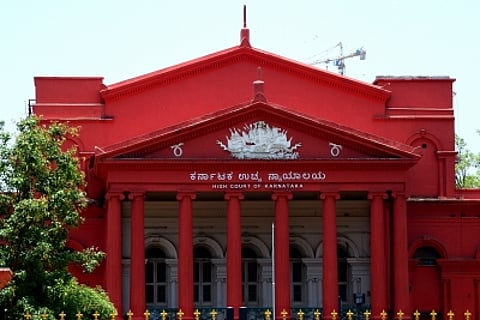

Follow TNM’s WhatsApp channel for news updates and story links.
The Karnataka High Court, on Monday, July 14, ordered the state government to publicly disclose its status report on the June 4 stampede at Bengaluru’s M Chinnaswamy Stadium, which claimed 11 lives. The court rejected the state’s plea to retain the report under sealed cover, ruling that it failed to meet any of the legally recognized grounds for such confidentiality, namely national security, public interest, or privacy.
A division bench comprising Acting Chief Justice V Kameswar Rao and Justice CM Joshi held that the contents of the June 12 report were simply “facts as perceived” by the government and that secrecy could not be justified in this case. The court directed the state to furnish the report, along with translations, to the other respondents, Karnataka State Cricket Association, Royal Challengers Bengaluru, and DNA Entertainment Networks Pvt Ltd.
According to Live Law, the state had argued through Advocate General Shashi Kiran Shetty that the report should remain confidential until the Magisterial Inquiry and Judicial Commission reports were completed, suggesting that disclosure might influence those findings. However, the bench dismissed the argument, noting, “Surely a retired High Court Judge and an All India Service Officer who are heading the Judicial Commission and Magisterial Inquiry cannot be susceptible to influences emanating from the status report.”
Citing the Supreme Court’s decision in Madhyamam Broadcasting Ltd. v. Union of India, the bench said that sealed cover proceedings are permissible only when one of the three specific legal grounds is met. “The plea of Sri Shetty and Sri Holla does not appeal to the Court... The case in hand does not fall in [the] three categories where sealed cover can be adopted,” the court said.
The court underlined that the suo motu proceedings were initiated to determine the causes of the stampede and explore preventive measures. It added that access to the state’s report by all parties would “assist the Court to understand the facts in a better perspective” and ensure a fair opportunity for each side to present its version of events.
According to Times of India, the court also held that the matter did not fall under Section 192(5) of the Bharatiya Nagarik Suraksha Sanhita (BNSS), thereby ruling out investigative confidentiality as a defense.
Amicus curiae S Susheela strongly opposed the sealed cover approach, arguing that transparency was critical and that the delayed disclosure undermined fairness. “Our justice delivery system does not approve the stance of the state to disclose documents after 10-15 days... it has to be transparent,” she submitted.
The court agreed, stating, “In any case, when replies/response of respondents No.2, 3 and 4 on the happening of events on 04.06.2025 has been shared with the counsel for the State, there is no reason, nor any justification not to share the status report as filed by the State.”
The High Court will resume hearing the matter on Wednesday.